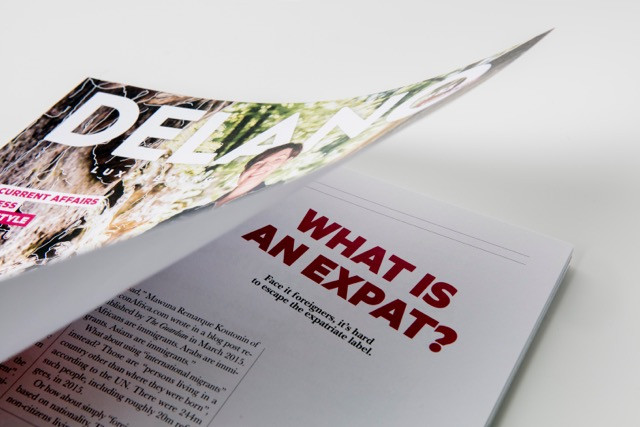Many of our readers bristle at the use of “expat” and “expatriate”. Several of the people that we cover have specifically asked us not to use those terms when describing them or their organisation. The word, to some, conjures up the image of pampered posted staff, riding out their short-term assignment on a fat expense account and living in a bubble apart from the local community.
In our articles, Delano often opts for the more encompassing “international resident”. Would “foreigner”, “immigrant” or “migrant” be better? What’s in a name?
An expatriate is “a person who lives in a foreign country”, according to Dictionary.com. The word comes from the Latin ex- (out of) and patria (one’s native country). In the 19th century, an expat was someone “who has been banished” from their home country; the modern meaning of “one who chooses to live abroad” took hold in 1902, the site says.
These days expatriates can be defined as “those temporarily resident in a country other than their country of origin for a period of between three months and ten years,” reckons Finaccord. The financial services market research firm estimated last year that there were 83.3m “individual worker” expats worldwide. Another 21.8m were “transferees”, including diplomats and NGO staff, retirees, international students and “non-employed spouses and children”.
Yet the term can be discriminatorily applied. “Expat is a term reserved exclusively for western white people going to work abroad,” Mawuna Remarque Koutonin of SiliconAfrica.com wrote in a blog post republished by The Guardian in March 2015. “Africans are immigrants. Arabs are immigrants. Asians are immigrants.”
What about using “international migrants” instead? Those are “persons living in a country other than where they were born”, according to the UN. There were 244m such people, including roughly 20m refugees, in 2015.
Or how about simply “foreigners”? That’s based on nationality. There were 281,500 non-citizens living in Luxembourg at the beginning of this year, 48% of the country’s total population, says Statec. Yet some of those foreigners were born and raised in the grand duchy.
I’ve now lived a quarter of my life outside the country of my birth. At what point do these labels start to dissolve? Does it really depend on years of residency or an integration course or naturalisation papers?
I think it’s more about your attitude. I certainly know plenty of people living in the expat bubble, but there are plenty more trying to get the best out of their time abroad, whether it’s a short stint or permanent move or something in-between. When you find people and groups and traditions to get involved with locally, you’re much less likely to care how you’re labelled. As William Shakespeare wrote, “a rose by any other name would smell as sweet”.
What do you think of the term “expat”? Tell me on Twitter.
